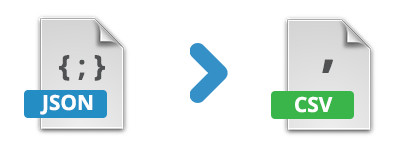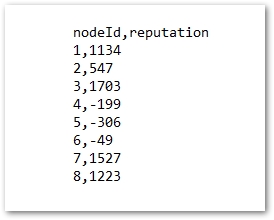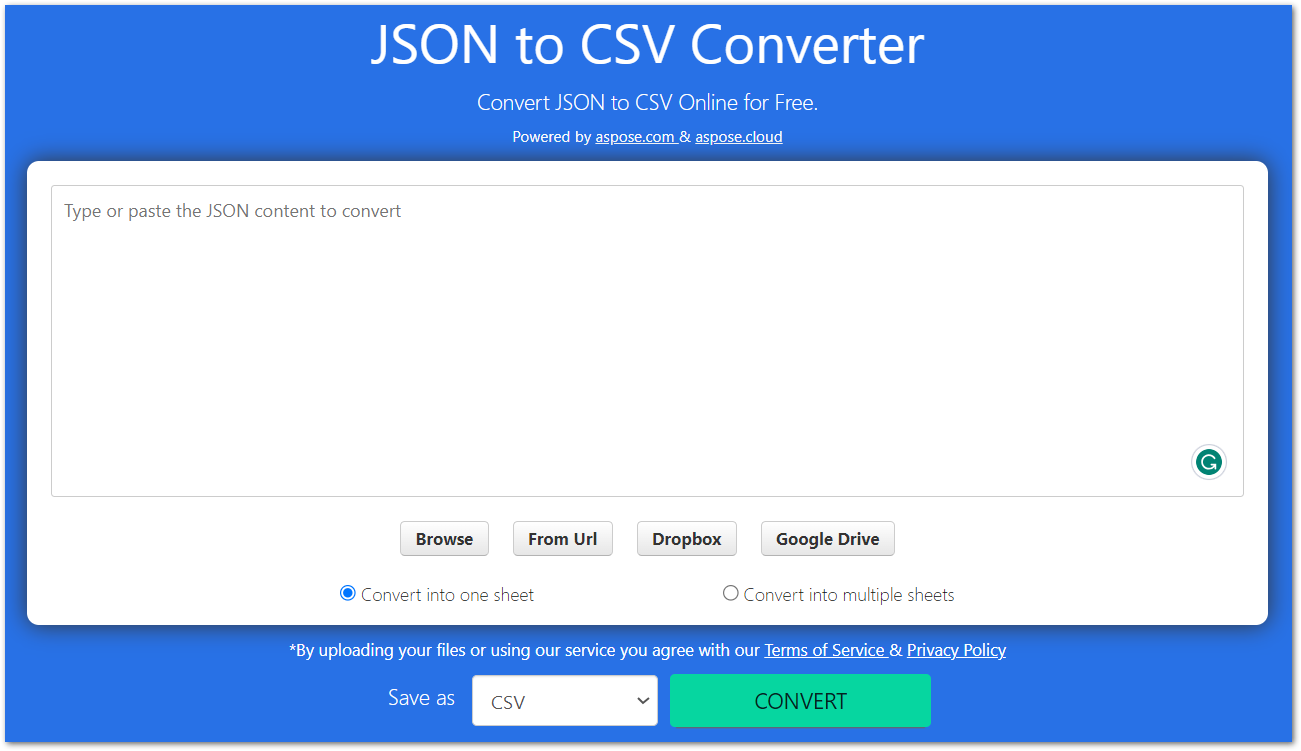
When working with data, two formats often come into play: JSON (JavaScript Object Notation) and CSV (Comma-Separated Values). JSON is great for structured data exchange, while CSV remains a simple, human-friendly way to store tabular data. In this post, I’ll walk you through a detailed, step-by-step process to convert JSON data into CSV format using C#. Whether you’re integrating with APIs or reformatting data for legacy systems, this guide will cover everything you need.
- C# JSON to CSV Converter
- Steps to Convert JSON to CSV
- Convert JSON Data or File to CSV
- Convert JSON to CSV Online
C# Library to Convert JSON to CSV
To handle the conversion seamlessly, we use the powerful Aspose.Cells JSON Converter for .NET library. You can quickly get started by downloading the API or installing it via NuGet. For instance, using the Package Manager Console, simply run:
PM> Install-Package Aspose.Cells
Steps to Convert JSON to CSV
Aspose.Cells for .NET simplifies the conversion of JSON to CSV. Here’s a more detailed look at the overall process:
- Create a New Excel Workbook: Start from a blank canvas by creating a new Excel file.
- Read Your JSON Data: Import data from a JSON file or a JSON string.
- Import Data into the Workbook: Use the library’s built-in functions to insert the JSON data into the Excel workbook.
- Export as CSV: Save the data from the workbook into a CSV file, making it ready for use in various applications.
With these steps in mind, let’s dive deeper into the code.
Convert JSON Data to CSV in C#
This section will detail how to convert JSON to CSV programmatically in C#. The process involves:
- Creating a Workbook Object: You instantiate a new Workbook object which serves as your Excel file.
- Selecting the Worksheet: Obtain a reference to the first worksheet via the Workbook.Worksheets[0] collection.
- Setting Up Conversion Options: Create an instance of the JsonLayoutOptions class to configure any additional settings you might need.
- Importing JSON Data: Use the JsonUtility.ImportData() method to load your JSON data directly into the worksheet.
- Saving as CSV: Finally, export your workbook data as a CSV file using the Workbook.Save(string, SaveFormat.CSV) method.
The code sample below shows a practical implementation of exporting JSON data to CSV with C#:
JSON Data
For demonstration, consider the following JSON sample, which represents a list of nodes with their reputations. This is the JSON input used in the above code example:
[
{"nodeId":1,"reputation":1134},
{"nodeId":2,"reputation":547},
{"nodeId":3,"reputation":1703},
{"nodeId":4,"reputation":-199},
{"nodeId":5,"reputation":-306},
{"nodeId":6,"reputation":-49},
{"nodeId":7,"reputation":1527},
{"nodeId":8,"reputation":1223}
]
Converted CSV
After running the conversion, the JSON data is transformed into a neatly organized CSV file. The image below shows a sample of what the converted CSV might look like:

Convert JSON to CSV Online
If you’d prefer a quick solution without writing code, check out our free online JSON to CSV converter. This tool allows you to simply upload your JSON file and it handles the conversion for you in a snap.

Free JSON Data to CSV Converter
Want to try the full power of Aspose.Cells for .NET without any limits? You can grab a free temporary license and export JSON files to CSV format without any evaluation restrictions. For further details, the documentation is very helpful, and our community is active on the forum if you have any questions.
Conclusion
Converting JSON data to CSV using C# is both efficient and straightforward with Aspose.Cells for .NET. This library not only simplifies Excel file operations but also bridges the gap between different data formats, making it easier to integrate and manipulate data in .NET applications. Whether you’re developing data-driven applications or just reformatting your data, following the steps above will help you convert JSON file to Excel using C# or utilize other methods such as JSON to CSV C# Console for your projects. You can also explore how to convert JSON to CSV in Excel for a quick spreadsheet solution, or use the C# JSON to CSV approach for more programmatic flexibility. Additionally, if you need to convert JSON to CSV in Excel, the methods above provide a comprehensive guide to achieving that.